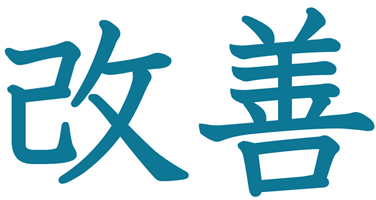3 Principles of Kaizen
The 3 principles of Kaizen are:
- gemba: the place where work is done
- gembutsu: the actual product
- genjitsu: the facts
In order to have a successful Operational Excellence culture by embedding a Kaizen philosophy of work, it means people perform hands-on problem-solving by going to the actual place of work (gemba). Then working with the actual product (gembutsu) and determining the facts (genjitsu) about the situation at-hand.
Following this path is referred to as: Genchi Genbutsu, translated as “go look, go see” and is predicated on the viewpoint that value creation is best understood – and, problems best solved – right where the hands-on work is performed.
The Kaufman Global White Paper: Implementing Lean Manufacturing, describes in detail how to achieve kaizen.
If you don’t want to download, you can read it online in our blog here.
« Back to Glossary Index
 Kaizen
Kaizen